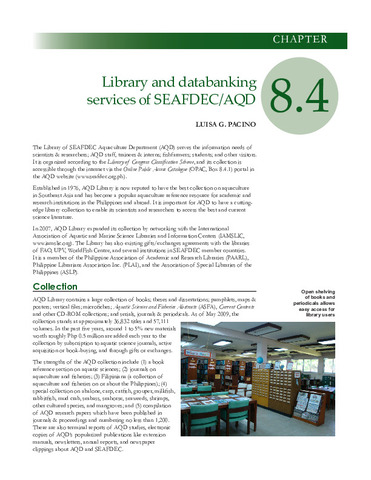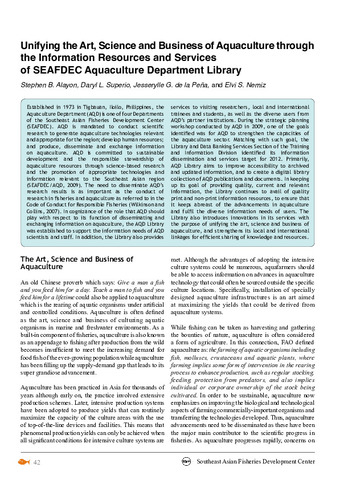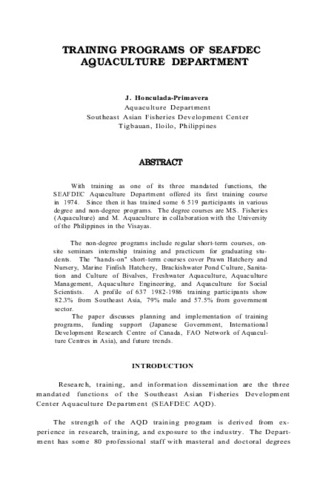The information-seeking behavior and levels of knowledge, precaution, and fear of college students in Iloilo, Philippines amidst the COVID-19 pandemic
| dc.contributor.author | Superio, Daryl | |
| dc.contributor.author | Anderson, Kristen | |
| dc.contributor.author | Oducado, Ryan Michael | |
| dc.contributor.author | Luceño, Myrna | |
| dc.contributor.author | Palcullo, Vince | |
| dc.contributor.author | Bendalian, Maria Vanessa | |
| dc.date.accessioned | 2021-06-28T03:27:48Z | |
| dc.date.available | 2021-06-28T03:27:48Z | |
| dc.date.issued | 2021-06-24 | |
| dc.identifier.citation | Superio, D. L., Anderson, K. L., Oducado, R. M. F., Luceño, M. T., Palcullo, V. E. V., & Bendalian, M. V. T. (2021). The information-seeking behavior and levels of knowledge, precaution, and fear of college students in Iloilo, Philippines amidst the COVID-19 pandemic. International Journal of Disaster Risk Reduction, 62, 102414. https://doi.org/10.1016/j.ijdrr.2021.102414 | en |
| dc.identifier.issn | 2212-4209 | |
| dc.identifier.uri | http://hdl.handle.net/10862/6071 | |
| dc.description.abstract | COVID-19 pandemic is devastating the health, social, and economic well-being of citizens worldwide. The high rates of morbidity and mortality and the absence of vaccines cause fear among the people regardless of age, gender, or social status. People's fear is heightened by misinformation spread across all media types, especially on social media. Filipino college students are one of the top Internet users worldwide and are very active in social media. Hence they are very prone to misinformation. This paper aims to ascertain the levels of knowledge, precaution, and fear of COVID-19 of the college students in Iloilo, Philippines, and determine the effects of their information-seeking behavior on the variables above. This paper is a cross-sectional survey that used a qualitative-quantitative method and snowball sampling technique. Data were gathered among 228 college students using an online survey instrument a few months after the pandemic began. College students were knowledgeable of the basic facts about the highly infectious COVID-19. However, the majority were inclined to believe the myths and misinformation regarding the pandemic. Television was the primary, most believable, and preferred source when seeking information. The Internet as a preferred source of information was significantly associated with a high level of knowledge. In contrast, the information sourced from interpersonal channels were found to make college students very cautious. The local presence of COVID-19 cases had caused college students to fear, likely exacerbated by the plethora of information about the pandemic, mostly from Facebook. This is the first study conducted on the effects of the information-seeking behavior on the levels of knowledge, precaution, and fear of COVID-19 of the college students in Iloilo, Philippines. | en |
| dc.language.iso | en | en |
| dc.publisher | Elsevier | en |
| dc.relation.uri | https://www.sciencedirect.com/science/article/pii/S2212420921003757/pdf | en |
| dc.subject | Health crisis | en |
| dc.subject | Information sources | en |
| dc.subject | mass media | en |
| dc.subject | Interpersonal channels | en |
| dc.subject | en | |
| dc.subject | Philippines | en |
| dc.title | The information-seeking behavior and levels of knowledge, precaution, and fear of college students in Iloilo, Philippines amidst the COVID-19 pandemic | en |
| dc.type | Article | en |
| dc.identifier.doi | 10.1016/j.ijdrr.2021.102414 | |
| dc.citation.volume | 62 | |
| dc.citation.spage | 102414 | |
| dc.citation.journalTitle | International Journal of Disaster Risk Reduction | en |
| dc.subject.asfa | education | en |
| dc.subject.asfa | information services | en |
| dc.subject.asfa | behaviour | en |
| dc.subject.asfa | social media | en |
Files in this item
| Files | ขนาด | รูป | View |
|---|---|---|---|
|
There are no files associated with this item. |
|||
รายการนี้ปรากฏใน (s)
-
Journal Articles [1262]
These papers were contributed by Department staff to various national and international journals.




